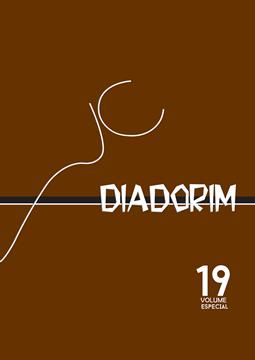Truly Minimal Pronouns
DOI:
https://doi.org/10.35520/diadorim.2017.v19n0a13512Keywords:
generic pronoun, null inclusive generic pronoun, languages with agreement, languages without agreementAbstract
Tis paper examines the properties of inclusive generic constructions, focusing on languages where the inclusive generic pronoun is a null category. We investigate empirical data from a set of languages with and without agreement to test Phimsawat's (2011) hypothesis that the inclusive generic pronoun lacks all phi-features, and therefore has the least restricted reading, due to there being no restriction on the reference. We show that this hypothesis cannot hold true universally, as phi-features trigger agreement in inflecting languages. We show that there is a correlation between presence of agreement and restriction to human reference for null inclusive generic pronouns, based on comparison of a set of languages without agreement (Tai, Mandarin Chinese, Korean, Vietnamese, and Sinhala) with a set of languages with agreement (Finnish, Brazilian Portuguese, Hebrew, Basque, and Tamil). An explanation in terms of feature architecture is proposed for this correlation. A prediction for generic PRO is discussed and shown to be inconclusive or false.Downloads
Published
Issue
Section
License
Copyright transfer -- Authorization to publication
If the submitted article is approved for publication, it is already agreed that the author authorizes UFRJ to reproduce it and publish it in Diadorim: revista de estudos linguísticos e literários, the terms "reproduction" and "publication" being understood as defined respectively by items VI and I of article 5 of Law 9610/98. The article can be accessed both by the World Wide Web (WWW) and by the printed version, with free consultation and reproduction of a copy of the article for the own use of those who consult. This authorization of publication is not limited in time, and UFRJ is responsible for maintaining the identification of the author of the article.

The journal Diadorim: revista de estudos linguísticos e literários is licensed under a Creative Commons Attribuition-NonCommercial 4.0 International (CC BY-NC 4.0).

